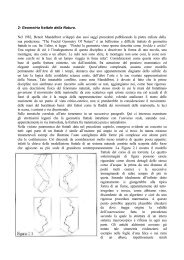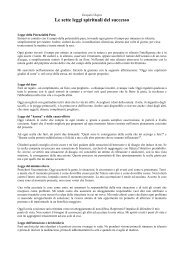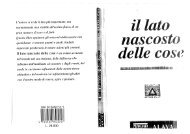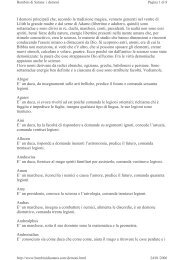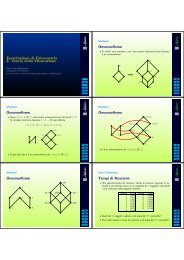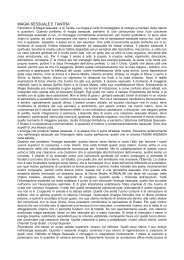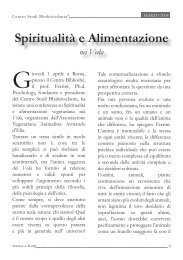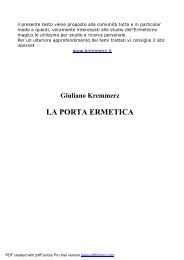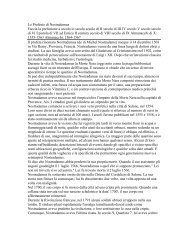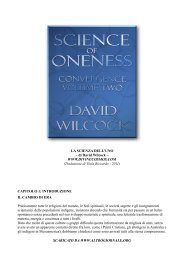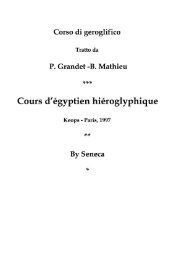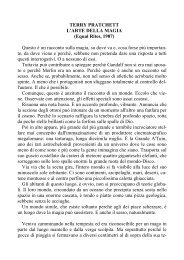176 TALIBAN ROMANCING THE TALIBAN 2: 1997-99 177constituted a major betrayal, while Washington's refusal to harness internationalpressure to help broker a settlement between the warlords wasconsidered a double betrayal. Other Afghans were furious at the USA forallowing Pakistan a free hand in Afghanistan. The US strategic absenceallowed all the regional powers, including the newly independent CARs,to prop up competing warlords, thereby intensifying the civil war andguaranteeing its prolongation. The pipeline of US military aid to theMujaheddin was never replaced by a pipeline of international humanitarianaid that could have been an inducement for the warlords to makepeace and rebuild the country.After the end of the Cold War, Washington's policy to the Afghanistan-Pakistan-Iran-CentralAsia region was stymied by the lack of a strategicframework. The USA dealt with issues as they came up, in a haphazard,piecemeal fashion, rather than applying a coherent, strategic visionto the region. There are several distinct phases of US policy towards theTaliban, which were driven by domestic American politics or attemptedquick-fix solutions rather than a strategic policy.Between 1994 and 1996 the USA supported the Taliban politicallythrough its allies Pakistan and Saudi Arabia, essentially because Wash- Iington viewed the Taliban as anti-Iranian, anti-Shia and pro-Western.The USA conveniently ignored the Taliban's own Islamic fundamentalistagenda, its supression of women and the consternation they created inCentral Asia largely because Washington was not interested in the largerpicture. Between 1995 and 1997 US support was even more drivenbecause of its backing for the Unocal project - even though at the timethe USA had no strategic plan towards accessing Central Asian energyand thought that pipelines could be built without resolutions to regionalcivil wars.The US policy turnaround from late 1997 to today was first drivenexclusively by the effective campaign of American feminists against theTaliban. As always with the Clinton agenda, domestic political concernsoutweighed foreign policy-making and the wishes of allies. Clinton onlywoke up to the Afghanistan problem when American women knockedon his door. President and Mrs Clinton had relied heavily on the Americanfemale vote in the 1996 elections and on female support during theMonica Lewinsky saga. They could not afford to annoy liberal Americanwomen. Moreover, once Hollywood got involved - its liberal stars werekey financiers and supporters of the Clinton campaign and Vice-PresidentAlbert Gore was anxious to retain their support for his own election bid -there was no way the US could be seen as soft on the Taliban.In 1998 and 1999 the Taliban's support for Bin Laden, their refusal toendorse the Unocal project or compromise with their opponents and thenew moderate government in Iran provided additional reasons for theUSA to get tough with the Taliban. In 1999 'getting Bin Laden' wasWashington's primary policy objective, even as it ignored the new Islamicradicalism Afghanistan was fostering, which would in time only throw updozens more Bin Ladens. Nevertheless, late as it was, for the first time theUSA was genuinely on the peace train and gave full support to UN mediationefforts to end the war.US policy has been too preoccupied with wrong assumptions. When Ifirst spoke to diplomats at the US Embassy in Islamabad after the Talibanemerged in 1994, they were enthusiastic. The Taliban had told the streamof US diplomats who visited Kandahar that they disliked Iran, that theywould curb poppy cultivation and heroin production, that they wereopposed to all outsiders remaining in Afghanistan including the Arab-Afghans and they had no desire to seize power or rule the country. SomeUS diplomats saw them as messianic do-gooders - like bom-again Christiansfrom the American Bible Belt. US diplomats believed that the Talibanwould meet essential US aims in Afghanistan - 'eliminating drugsand thugs', one diplomat said. It was a patently naive hope given theTaliban's social base and because they themselves did not know what theyrepresented nor whether they wanted state power.There was not a word of US criticism after the Taliban captured Heratin 1995 and threw out thousands of girls from schools. In fact the USA,along with Pakistan's ISI, considered Herat's fall as a help to Unocal andtightening the noose around Iran. Washington's aim of using the Talibanto blockade Iran was equally shortsighted, because it was to pitch Iranagainst Pakistan, Sunni against Shia and Pashtun against non-Pashtun.'Whatever the merits of the isolation policy towards Iran in the fightagainst terrorism, they incapacitate the US in Afghanistan,' wrote BarnettRubin. 14 Iran, already paranoid about CIA plots to undermine it, wentinto overdrive to demonstrate CIA support for the Taliban while steppingup its own arming of the anti-Taliban alliance. 'US policy is forcing usto join Russia and the anti-Taliban alliance against Pakistan, SaudiArabia and the Taliban,' an Iranian diplomat said. 15Some US diplomats, concerned with the lack of direction in Washingtonon Afghanistan, have admitted that there was no coherent USpolicy, except to go along with what Pakistan and Saudi Arabia wanted.In a confidential 1996 State Department memo written just before theTaliban captured Kabul, parts of which I read, analysts wrote that, if theTaliban expanded, Russia, India and Iran would support the anti-Talibanalliance and the war would continue; that the USA would be tornbetween supporting its old ally Pakistan and trying to prevent antagonizingIndia and Russia with whom the USA was trying to improve relations.In such a situation, the State Department surmised, the USA could not
178 — TALIBANROMANCING THE TALIBAN 2: 1997-99 — 179hope to have a coherent policy towards Afghanistan. In a US election The US and Unocal wanted to believe that the Taliban would win andyear a coherent Afghan policy was not particularly necessary either.went along with Pakistan's analysis that they would. The most naive USThere was another problem. Few in Washington were interested in policy-makers hoped that the Taliban would emulate US-Saudi ArabiaAfghanistan. Robin Raphel, the US Assistant Secretary of State for South relations in the 1920s. 'The Taliban will probably develop like the SaudisAsia and the key policy maker for Washington's Afghan policy at the did. There will be Aramco, pipelines, an emir, no parliament and lots oftime, privately admitted that there was little interest in her initiatives on Sharia law. We can live with that,' said one US diplomat. 20 Given theirAfghanistan higher up the chain of command in Washington. Secretary suspicions, it was not unexpected that the anti-Taliban alliance, Iran andof State Warren Christopher never mentioned Afghanistan once during Russia, should view the Unocal project as an arm of US-CIA foreignhis entire tenure. Raphel's attempts to float the idea of an international policy and as the key to US support for the Taliban. Unocal's links witharms embargo on Afghanistan through the UN Security Council drew the US government became a subject of massive speculation. US commentatorRichard Mackenzie wrote that Unocal was being regularly bri-little support from the White House. In May 1996 she managed to pushthrough a debate on Afghanistan in the UN Security Council - the first efed by the CIA and the ISI. 21in six years. And in June, Senator Hank Brown, with support fromUnocal neither admitted nor denied receiving State Department support,as any US company would have in a foreign country, but it deniedRaphel, held Senate Hearings on Afghanistan and conducted a three-dayconference in Washington between leaders of the Afghan factions andUS legislators, which Unocal helped fund. 16links with the CIA. 'Since Unocal was the only US company involvedin the CentGas consortium, State Department support for that routeRaphel recognized the dangers emanating from Afghanistan. In May became, de facto, support for CentGas and Unocal. At the same time,1996 she told the US Senate, 'Afghanistan has become a conduit for Unocal's policy of political neutrality was well known to the US Government,'Unocal President John Imle told me. 22 Unocal's failure was that itdrugs, crime and terrorism that can undermine Pakistan, the neighbouringCentral Asian states and have an impact beyond Europe and Russia.' She never developed a relationship with the Afghan factions, which weresaid extremist training camps in Afghanistan were exporting terrorism. 17independent of the US and Pakistan governments.But Raphel's perserverance turned into patchwork diplomacy, because itThere was a bigger problem. Until July 1997 when Strobe Talbott madewas not underpinned by a serious US commitment towards the region.his speech in Washington, the USA had no strategic plan for accessingWhen the Taliban captured Kabul in September 1996, the CIA, again Central Asia's energy. US oil companies were faced with what they couldencouraged by ISI analysis, considered that a Taliban conquest of the not do, rather than what they could do since they were forbidden to buildcountry was now possible and that the Unocal project could reach fruition.The USA was silent on the Taliban's repression of Kabul's women its policy of 'a transport corridor' from the Caspian to Turkey (avoidingpipelines through Iran and Russia. When Washington finally articulatedand the dramatic escalation in fighting and in November Raphael urged Russia and Iran), the oil companies were reluctant to oblige given theall states to engage the Taliban and not isolate them. 'The Taliban controlmore than two-thirds of the country, they are Afghan, they are indi-USA declined to tackle was peace-making in the region. Until there wascosts and the turbulence in the region. The essential issue which thegenous, they have demonstrated staying power. The real source of their an end to the civil wars in Central Asia and the Caspian (Afghanistan,success has been the willingness of many Afghans, particularly Pashtuns, Tajikistan, Georgia, Chechnya, Nagorno-Karabakh, the Kurdish issue)to tacitly trade unending fighting and chaos for a measure of peace and and there was a broad consensus with Iran and Russia, pipelines wouldsecurity, even with severe social restrictions,' said Raphel. 'It is not in the neither be safe to build nor commercially feasible, as every step of theinterests of Afghanistan or any of us here that the Taliban be isolated,' way Iran and Russia would block or even sabotage them.she added. 18It was in the interests of Iran and Russia to keep the region unstableSeveral concerned American commentators noted the inconsistency of by arming the anti-Taliban alliance, so that US pipeline plans could neverUS policy at the time. 'The US, although vocal against the ongoing succeed. Even today the USA is muddled on the critical question ofhuman rights violations, has not spelled out a clear policy towards the whether it wants to save Central Asia's depressed economies by lettingcountry and has not taken a strong and forthright public stand against them export energy any way they like or to keep Iran and Russia underthe interference in Afghanistan by its friends and erstwhile allies - Saudi blockade as far as pipelines are concerned.Arabia and Pakistan, whose aid — financial and otherwise — enabled theTaliban to capture Kabul.' 19 The USA and Unocal were essentially faced with a simple question inAfghanistan. Was it preferable to rely on Pakistan and Saudi Arabia to
- Page 1 and 2:
YALE NOTA BENE"The broader storyher
- Page 3 and 4:
TalibanMilitant Islam,Oil and Funda
- Page 5 and 6:
Vi ~ CONTENTSChapter 8A Vanished Ge
- Page 7 and 8:
AFGHANISTAN•^ UZBEKISTAN J TAJIKI
- Page 9 and 10:
2 ~ TALIBANaccounts for some 40 per
- Page 11 and 12:
"6 ~ TALIBANgas riches of landlocke
- Page 13 and 14:
10 ~ TALIBANgious mix that was to m
- Page 15 and 16:
Part 1History of theTaliban Movemen
- Page 17 and 18:
18 ~ ISLAM OIL AND THE NEW GREAT GA
- Page 19 and 20:
22 ~ ISLAM OIL AND THE NEW GREAT GA
- Page 21 and 22:
26 ~ ISLAM OIL AND THE NEW GREAT GA
- Page 23 and 24:
30 ~ ISLAM OIL AND THE NEW GREAT GA
- Page 25 and 26:
34 TALIBANKabul- Hikmetyar had alli
- Page 27 and 28:
38 ~ TALIBANrHERAT 1995: GOD'S INVI
- Page 29 and 30:
42 ~ TALIBANdo manage to take Kabul
- Page 31 and 32:
J46 ~ TALIBANgreater weight to UN e
- Page 33 and 34:
50 ~ TALIBANas they hung from steel
- Page 35 and 36:
54 ~ TALIBANthey would help rearm t
- Page 37 and 38:
58 TALIBANGul Mohammed Pahlawan, Gh
- Page 39 and 40:
62 TALIBAN2,500 Taliban, who had re
- Page 41 and 42:
66 TALIBANshould throw all aid agen
- Page 43 and 44:
70 ~ TALIBANyears of battle and hel
- Page 45 and 46: 74 ~ TALIBANThousands of Hazaras we
- Page 47 and 48: 78 TALIBANhas become a plague,' sai
- Page 49 and 50: NEW STYLE FUNDAMENTALISM OF THE TAL
- Page 51 and 52: 86 TALIBANsity students - Hikmetyar
- Page 53 and 54: 90 TALIBANSharia was heavily influe
- Page 55 and 56: 94 TALIBANinflamed the debate in th
- Page 57 and 58: 98 TALIBANizing factor of Islam, it
- Page 59 and 60: 102 TALIBANadministrations made the
- Page 61 and 62: 106 ~ TAUBANfrom working, but it no
- Page 63 and 64: TALIBANUniversity, she held down a
- Page 65 and 66: 114 TALIBAN A VANISHED GENDER 115Ta
- Page 67 and 68: 118 TALIBANUS$1,300 - a small fortu
- Page 69 and 70: 122 TALIBANper cent of the total Pa
- Page 71 and 72: 126 TALIBANequipment, no electricit
- Page 73 and 74: 130 ~ TALIBANfight with the Mujahed
- Page 75 and 76: 134TALIBANAugust 1996 noted that Bi
- Page 77 and 78: 138 ~ TALIBANwho were using the Kho
- Page 79 and 80: 11DICTATORS AND OILBARONS: THE TALI
- Page 81 and 82: 146 TALIBAN DICTATORS AND OIL BARON
- Page 83 and 84: 150 — TALIBANgrowth of beards and
- Page 85 and 86: 154TALIBAN1998 when international o
- Page 87 and 88: 158 ~ TALIBANaround Afghanistan? Af
- Page 89 and 90: 162 TALIBAN ROMANCING THE TALIBAN 1
- Page 91 and 92: 166 TALIBAN ROMANCING THE TALIBAN 1
- Page 93 and 94: ROMANCING THE TALIBAN 2: 1997-99 17
- Page 95: 174 — TALIBANnon-Russian pipeline
- Page 99 and 100: 182 ~ TALIBANApril 1999. 'The US ha
- Page 101 and 102: 186 ~ TALIBANters or the transport
- Page 103 and 104: 190 ~ TALIBANThis Wild West of free
- Page 105 and 106: 194 ~ TALIBANgovernance. Pakistani
- Page 107 and 108: 198 TALIBAN SHIA VERSUS SUNNI: IRAN
- Page 109 and 110: 202 TALIBAN SHIA VERSUS SUNNI: IRAN
- Page 111 and 112: 206 — TALIBANin Afghanistan - to
- Page 113 and 114: 210 — TALIBANand antagonism. The
- Page 115 and 116: 214 ~ TALIBANdrawn since 1996 - a P
- Page 117 and 118: 218 ~ TALIBANated and severely puni
- Page 119 and 120: Origins of Members of the Taliban M
- Page 121 and 122: APPENDIX 3 ~ 227Appendix 3A CHRONOL
- Page 123 and 124: 230 ~ TALIBANgraves near Shebarghan
- Page 125 and 126: 234 ~ TALIBAN8 June. US FBI places
- Page 127 and 128: 238 ~ TALIBAN1995 January16 MarchAp
- Page 129 and 130: 242 ~ TALIBANJune21 August10 Septem
- Page 131 and 132: 246 ~ TALIBANDupree, Nancy Hatch, A
- Page 133 and 134: 250 ~ NOTESChapter 31 Interview wit
- Page 135 and 136: 254 ~ NOTESmuddin, Religious Police
- Page 137 and 138: 258 NOTES13. The Japanese company M
- Page 139 and 140: 262 ~ NOTES28. Waxman, Sharon, 'A c
- Page 141 and 142: Abbas, Mulla Mohammed 22,61,100Abda
- Page 143 and 144: INDEX - 270Hazaras (continued)burea
- Page 145 and 146: INDEX ~ 274nF»r\/FaliViar» milita
- Page 147:
INDEX ~ 278Talibans (continued)Sunn




